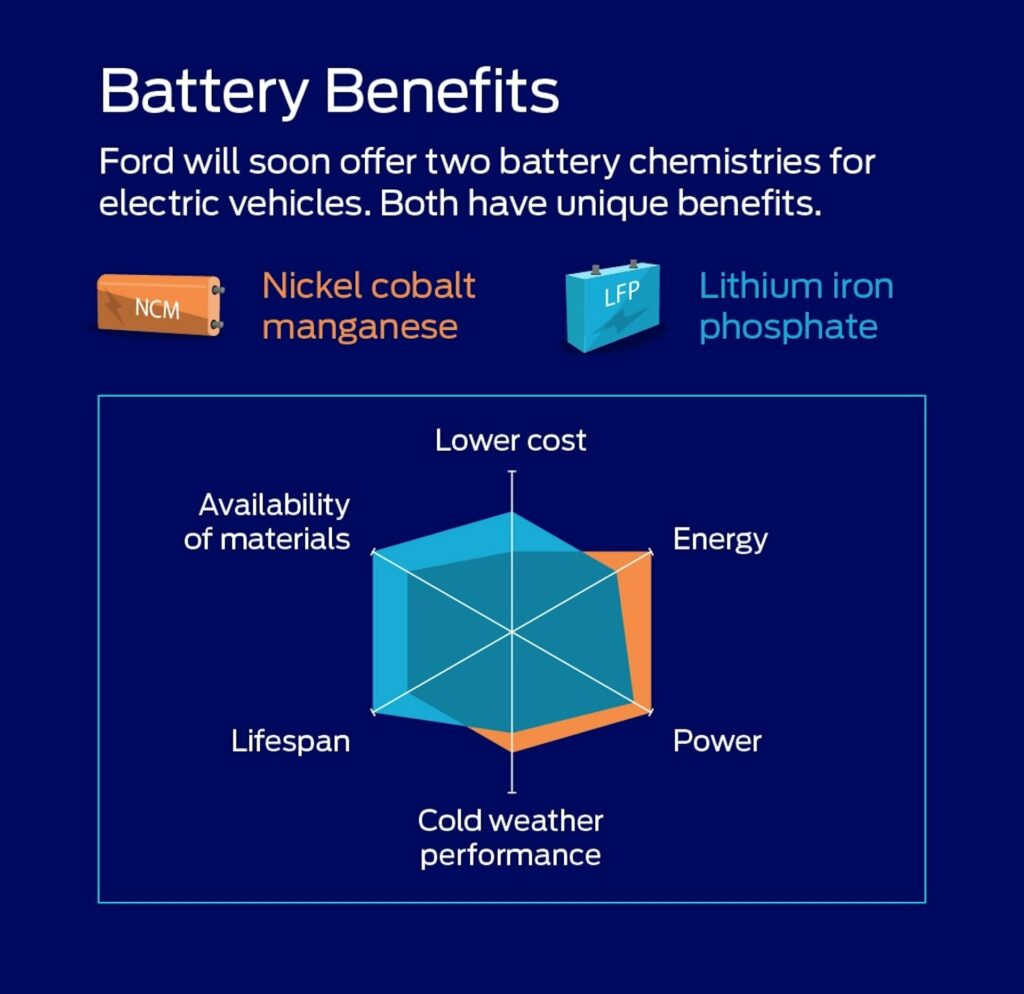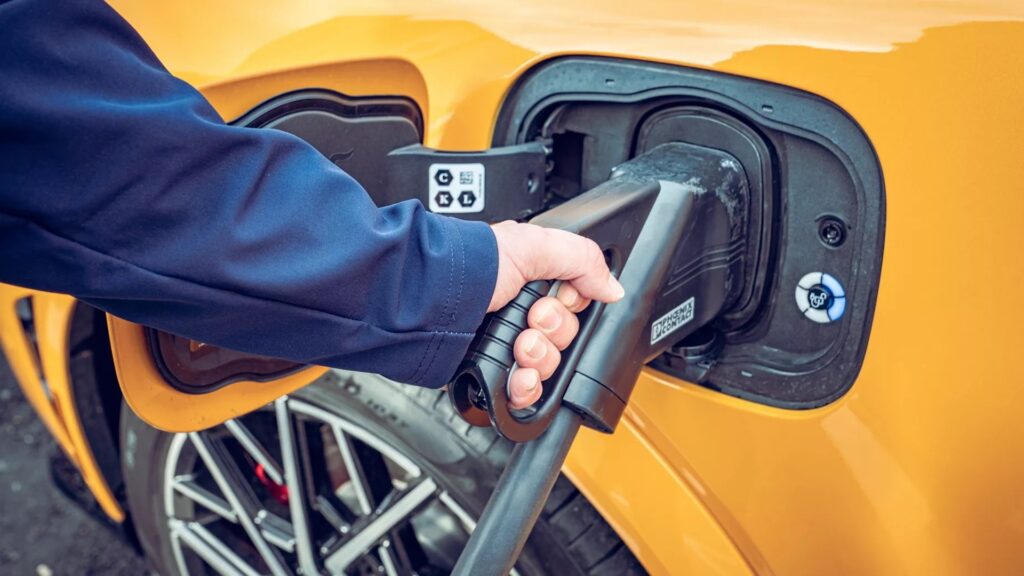One of the issues preventing automakers from producing cheaper EVs is the high cost of the nickel and cobalt used in traditional electric car batteries. And as more EVs come to the market demand for those minerals is only heading one way.
Ford’s solution is to introduce a new type of battery with a very different chemical makeup to some of its EVs starting this year with the Mustang Mach-E in both Europe and America, with the F-150 Lightning truck getting the new power packs in 2024. These new lithium iron phosphate (LFP) batteries will eventually be built at Ford’s newly announced U.S. battery plant, the $3.5 billion BlueOval Battery Park Michigan, which is scheduled to open in 2026.
As their name suggests, traditional nickel cobalt manganese (NCM) batteries rely heavily on nickel and cobalt, but the LFP batteries do not. Ford will offer both battery types (but not on the same vehicles) to protect itself against possible material shortages and cut customer wait times as it bids to ramp up its EV production. Under its Ford+ plan the firm hopes to deliver 600,000 EVs globally in 2023 and 2 million by 2026.
Related: Ford Opening $3.5B Michigan Battery Plant With Chinese Tech
The LFP batteries offer some enticing benefits over their NCM equivalents, including lower cost, faster charge times and a longer lifespan. But there are also some areas in which the NCM units are superior. They perform better in cold weather, and are suited to hauling big loads and covering long distances between fills. Ford’s video shows an image of the electric Transit as the ideal candidate for NCM power packs, and makes no mention of its getting the new LFP batteries.
Ford has already cut the prices of the Mustang Mach-E, and hasn’t said whether the new batteries will enable it to further reduce costs or whether it simply helps cover the loss of revenue resulting from those recent price cuts. Also absent is any specific detail on those shorter charge times or the alluded-to reduced driving range versus NCM batteries.





